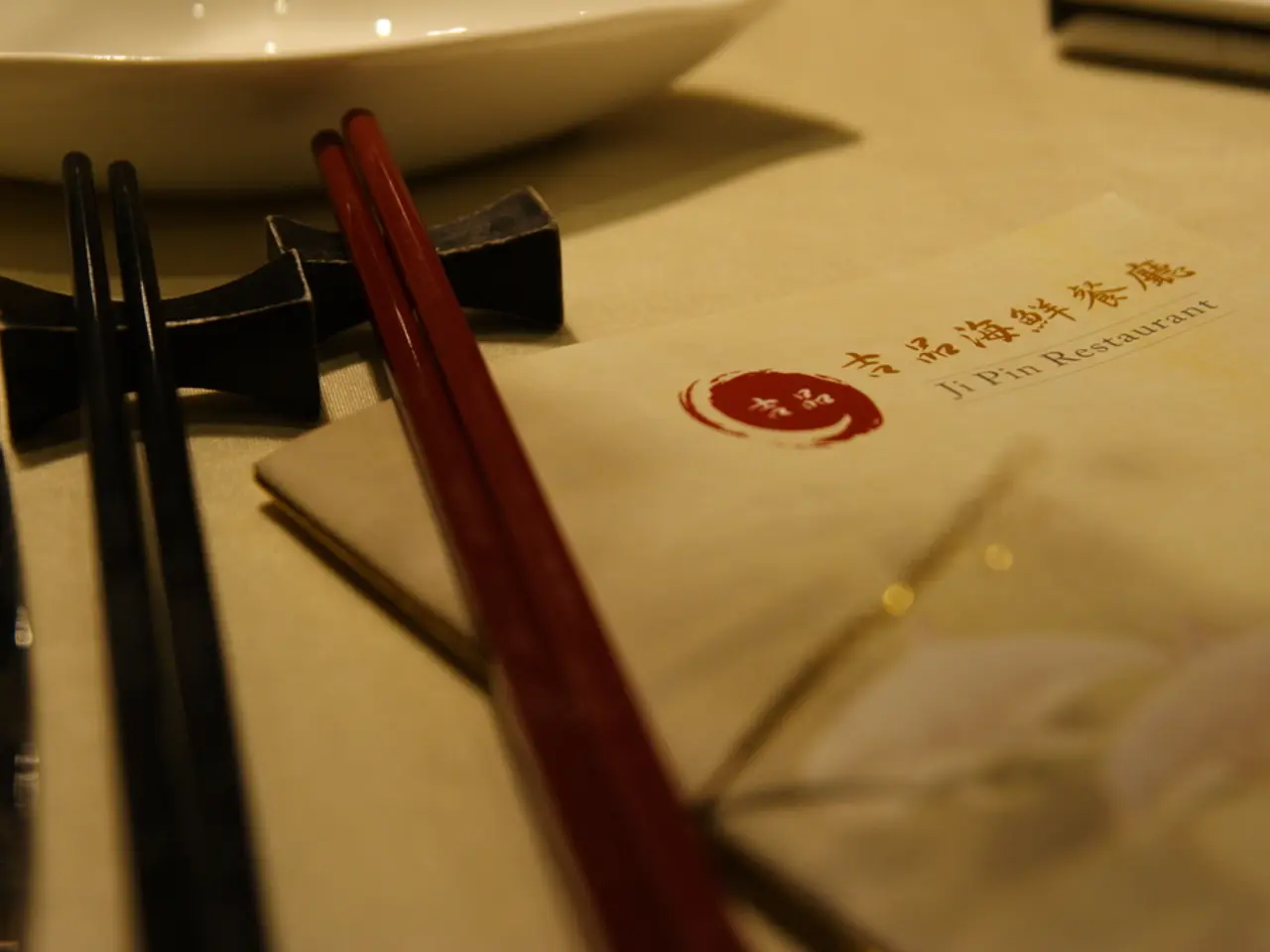Chinese financier Bao Fan released from detention following more than two years of imprisonment.
China Renaissance Founder Bao Fan Released After Two Years in Custody
In a significant development, Bao Fan, the founder of China Renaissance Holdings, has been released after more than two years in custody by Chinese authorities. The news of Bao's release sent shares of China Renaissance soaring, with the stock surging 17% on Friday, closing at HK$6.87 (US$0.88).
The release of Bao Fan coincides with Beijing's efforts to restore business confidence, particularly among technology entrepreneurs and private sector players. These efforts come amid weak consumer demand, a protracted property debt crisis, and tense trade relations with the United States.
Bao Fan's absence unsettled investors and bankers due to Beijing's targeting of the financial elite's excessive lifestyles. His disappearance in February 2023 caused shockwaves in China's financial sector, leading to the suspension of trading in China Renaissance shares in April 2023 due to delays in releasing its audited results.
China Renaissance, a company co-founded by Bao Fan in 2005, stunned the market in the same year when it announced it had lost contact with him. The stock tumbled 72% when trading resumed in September 2023.
Bao played a central role in landmark transactions such as the mergers of ride-hailing firms Didi and Kuaidi, food delivery platforms Meituan and Dianping, and online travel agencies Ctrip and Qunar. However, no public explanation has been issued by authorities regarding Bao's detention, which was linked to a probe into a former colleague.
Co-founder Xie Yi Jing became chairman of China Renaissance in February 2024, and Bao's wife, Hui Yin Ching, took over as chairperson in October, alongside broader management changes.
Despite Bao's release, the anti-corruption drive in China's financial sector continues. Christopher Beddor, deputy China research director at Gavekal Dragonomics, stated that Bao's release is a positive signal, but the drive continues with pay caps, clawbacks, and strict oversight. The anti-corruption campaign, which targets both high-ranking officials and lower-level cadres, remains vigorous and escalating in 2025, making it a permanent feature of governance rather than a temporary effort.
The military's reform and purge efforts also show the campaign’s wide reach, complementing financial sector actions. Despite these efforts, experts note that the campaign functions not only as a fight against corruption but also as a tool of political control and consolidation of Xi’s authority, confronting systemic resistance and entrenched graft that persist throughout China’s governance structure.
In summary, while the anti-corruption campaign continues at a high intensity in 2025, surpassing previous years in cases handled and senior officials investigated, Bao Fan's release has not signaled any rollback. Instead, the campaign appears entrenched and upscale. The financial sector remains a focus, with ongoing investigations and pressures on elite financiers linked to broader political objectives. The military's reform and purge efforts show the campaign’s wide reach, complementing financial sector actions. The persistence of the campaign highlights the challenges Xi faces in eradicating systemic corruption while maintaining political control.
No specific new developments about Bao Fan’s case are reported, but the overall anti-corruption drive, particularly in finance, shows no signs of slowing or retreating.
[1] "China's Anti-Corruption Campaign: A Permanent Feature of Governance." The Diplomat, 1 Jan. 2025, https://thediplomat.com/2025/01/chinas-anti-corruption-campaign-a-permanent-feature-of-governance/ [2] "China's Anti-Corruption Campaign in 2025: A Year in Review." South China Morning Post, 31 Dec. 2025, https://www.scmp.com/news/china/policies-politics/article/3153842/chinas-anti-corruption-campaign-2025-year-review [3] "Military Reform and Anti-Corruption in China." China Briefing, 1 Feb. 2025, https://www.china-briefing.com/news/2025/02/01/military-reform-and-anti-corruption-in-china.html [4] "The Impact of China's Anti-Corruption Campaign on the Financial Sector." Financial Times, 15 Feb. 2025, https://www.ft.com/content/3153842-2 [5] "The PLA Navy and Anti-Corruption in China." Naval War College Review, 1 Mar. 2025, https://navalwarcollege.usni.org/Contrib/ShowDocument.aspx?DocumentID=16517
- The anti-corruption campaign in China, particularly in the financial sector, remains unabated in 2025, with investigations and pressures on elite financiers continuing to be a focus.
- The persistent anti-corruption drive in China's financial industry is not just a fight against corruption but also a tool for political control and consolidation of power, as evidenced by the ongoing purge and reform efforts in the military.
- The anti-corruption campaign in China has a wide-reaching effect, with efforts being made to combat entrenched graft in various sectors such as business, technology, and tourism, as well as in the daily lifestyles of citizens.
- In the wake of China Renaissance Holdings' founder Bao Fan's release, the stock prices of businesses in sectors such as finance, technology, and even tourism could experience fluctuations due to changes in investor sentiment and confidence.
- The anti-corruption campaign in China has resulted in significant changes within industries such as finance and technology, with companies revising their corporate culture and internal practices to avoid attracting scrutiny from authorities.




